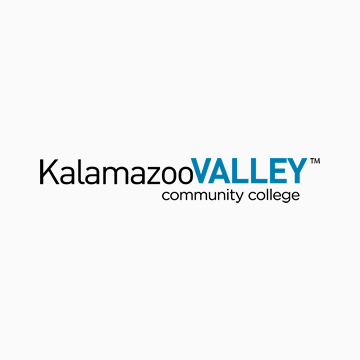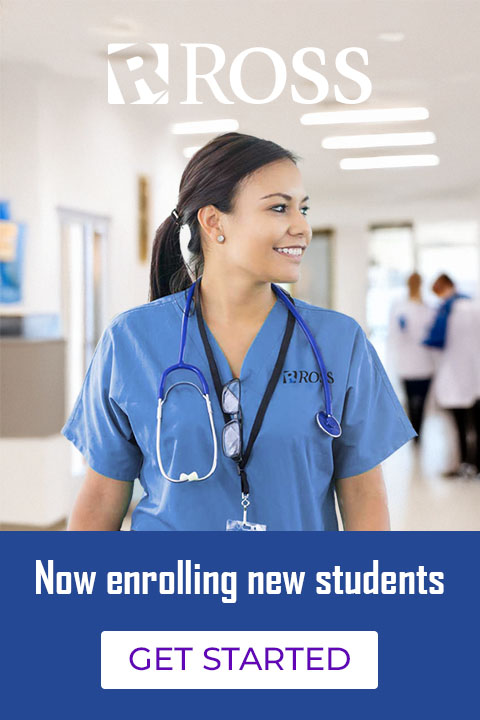Kalamazoo Valley Community College

The average annual net price that a student who receives federal financial aid pays to cover expenses (e.g. tuition, living expenses, etc.) to attend the school's largest program. Net price is the program's cost of attendance minus any grants and scholarships received. For public schools, this is only the average cost for in-state students. Negative cost values indicate that the average grant/scholarship aid exceeded the cost of attendance.
Est. Student Population
Healthcare Programs
About Kalamazoo Valley Community College
Kalamazoo Valley Community College is a public community college in Kalamazoo, Michigan. Founded in 1966, KVCC offers certificate programs and two-year associate degree courses to its students across four Michigan-based campuses.
Kalamazoo Valley Community College offers the following healthcare-related courses:
Health Sciences
All students seeking admission into a health careers program of study (dental hygiene, emergency medical services, medical assistant technology, nursing, nursing RN completion, or respiratory care practitioner) will initially be placed in the health sciences general studies AAS program of study. Once a student is accepted into a focused health career program they will be transferred from the health sciences general studies AAS program of study into the focused program of study (dental hygiene, emergency medical services, medical assistant technology, nursing, nursing RN completion, or respiratory care practitioner) and assigned the associated program code.
Medical Assistant Technology
The student will be trained in the administrative and clinical skills necessary for employment in an ambulatory care setting. Upon graduation, students will be immediately eligible to sit for AAMA Certification Examination. Successful completion of this examination allows candidates to practice as a CMA (AAMA) anywhere in the United States or its territories.
Nursing
The nursing program prepares the student for a technical career in nursing and is approved by the Michigan State Board of Nursing. It includes two semesters of prerequisite course work and four semesters of nursing course work for the full-time generic student. Upon successful completion of all course work, the graduate will be eligible to write the National Council Licensure Exam for the Registered Nurse (NCLEX-RN). Employment opportunities include acute care hospitals, long term acute care and extended care facilities, clinics, offices, home health, and ambulatory care. Graduates may transfer credits toward a Bachelor of Science in Nursing degree at many colleges and universities. Financial aid, scholarships, tutoring, and counseling services are available to assist students.
Recent news about Kalamazoo Valley Community College
The college is one of nine to join the 2025 cohort. Achieving the Dream aims to help community colleges become accessible hubs of education and economic mobility.
Thanks to a new online format, the college’s Sustainable Brewing program, which launched in 2015, will now be accessible nationwide with online courses supplemented by in-person work at the student’s brewery of employment.
The grant comes from The Michigan Center for Adult College Success and will allow the institutions to help adult students facing barriers to their education utilize their Kalamazoo Promise funding.
The project was made possible thanks to a partnership formed between KVCC instructor Sara Tanis, Ph.D. and Anton Bjorkman, the airport’s deputy director of operations and maintenance.
MI School Data, the State of Michigan’s source for school and workforce data, showed in an April report that Kalamazoo Valley Community College was the top choice for high school graduates in 2022 in the entire Kalamazoo Regional Educational Service Agency area.
Apprentices who complete journeyman certification training at Michigan Regional Council of Carpenters and Millwrights’ training center will be approved for Kalamazoo Valley Community College credit.
Kalamazoo Valley Community College will hold a virtual panel, keynote, and speaking event on March 25 to highlight distinguished figures in non-traditional roles in the skilled trades and medical field such as women in construction and men in nursing. The event is free and will be on Zoom, moderated by renowned Michigan broadcaster Lori Moore with a keynote from Krystle Schnell.
Kalamazoo Valley Community College students will now be able to earn Ferris State University credits at community college rates and will be eligible for special scholarships after completing their associate degree.
The USDA awarded KVCC a grant to develop degree and non-degree programs for training in sustainable agriculture and landscaping. Those in charge of the creation of these programs will seek input from local industry leaders and tap into faculty expertise.
For the last year, KVCC students in the Repiratory Therapy program have been learning and applying the skills needed to treat respiratory issues, as well as learning the softer skills of working with patients during a pandemic.



